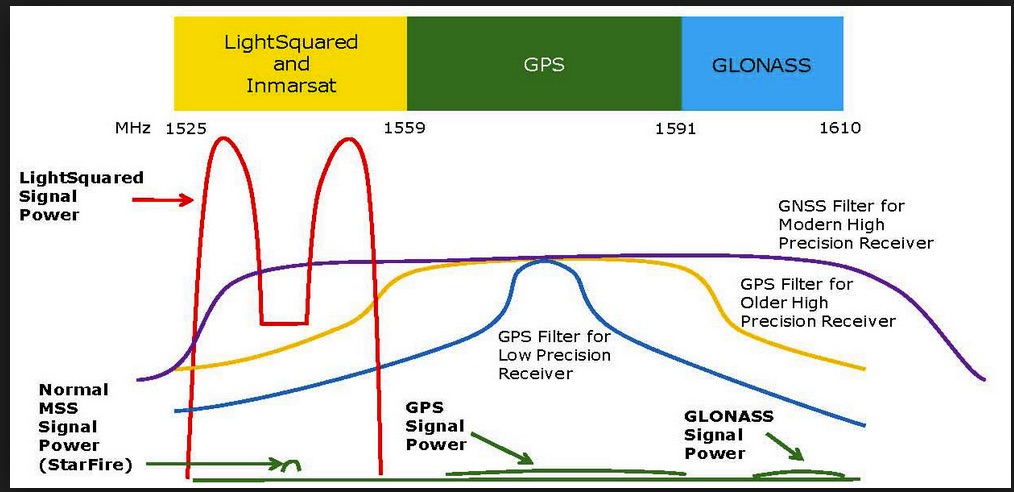A judge has discontinued a $2 billion lawsuit alleging “massive fraud” in a deal that helped launch a proposed project GPS experts oppose as a threat to satellite navigation receivers.
Harbinger Capital has been seeking billions in damages from Apollo Global Management and other defendants who Harbinger said sold it on a plan to launch a terrestrial broadband network using spectrum held by SkyTerra. SkyTerra, of which some of the defendants were owners and/or directors, had approval to use frequencies to support a satellite system. Those frequencies are in a band neighboring those used by GPS and other satellite navigation systems. Harbinger and affiliated firms invested in and then bought SkyTerra, renamed it LightSquared, and sought permission from the Federal Communications Commission (FCC) to use the spectrum to also support a powerful terrestrial network. Tests later showed that the LightSquared broadband network would interfere with the vast majority of GPS receivers.
Harbinger alleges the defendants knew, or were reckless in not knowing, that using that spectrum for the proposed network would overload GPS receivers. Harbinger said in its complaint that private testing starting in 2001 showed the then-planned network would “be fatal to the millions of GPS devices already in use, many of which are critical to the national infrastructure and already widely used for aviation, safety, defense and research purposes across the country.”
Harbinger and other firms spent hundreds of millions of dollars securing additional spectrum and developing the network before the FCC put the project on indefinite hold in 2012 due to the interference concerns. The firm soon filed bankruptcy and reorganized, emerging in 2015 with a new plan and, shortly thereafter, a new name—Ligado.
An Apollo spokesperson said in a written statement shortly after the suit was filed in December 2017 that Apollo believed the suit lacked merit and that it intended to defend itself “vigorously.”
Though filed more than a year and a half ago, there’s been little action in the suit. The court agreed to a series of delays—including one in August at the request of Ligado—until deciding June 14, with the agreement of both parties, to discontinue the legal action. Court filings before the Supreme Court of the State of New York said lawsuit was discontinued without prejudice, so it may reemerge at some point in the future.
The FCC still has not decided whether to allow broader terrestrial use of the spectrum. Ligado recently petitioned for a decision on the matter under Section 7 of the Communications Act. That section would have the FCC make decisions within a year but the rules for implementing Section 7 are not set. They are still being considered by the FCC under GN Docket No. 18-22.
Though Ligado says GPS interference issues have been addressed under its modified plan, GPS experts strongly disagree.
“I consider it a grave threat to GPS particularly for the high precision users but actually for all users,” Brad Parkinson told a meeting of the National Space-Based Positioning, Navigation, and Timing (PNT) Advisory Board on June 6. The PNTAB is the nation’s leading panel of experts on satellite navigation. Parkinson, who is widely considered to be the father of GPS, serves as 1st Vice Chair of the board. The PNTAB stated its opposition to the revised plan in an Aug. 10, 2018 letter.
“This risk is far too great, and far too many questions remain, for Ligado’s proposal to be approved,” the PNTAB told the National Executive Committee for Space-Based PNT, the United State’s leading inter-agency policy board on GPS. “While there are many broadband alternatives (Ligado would be a very small percentage of this national asset), there is only one GPS. Any impairment to current and future uses is clearly contrary to the national interest.”







